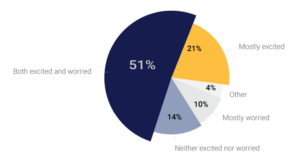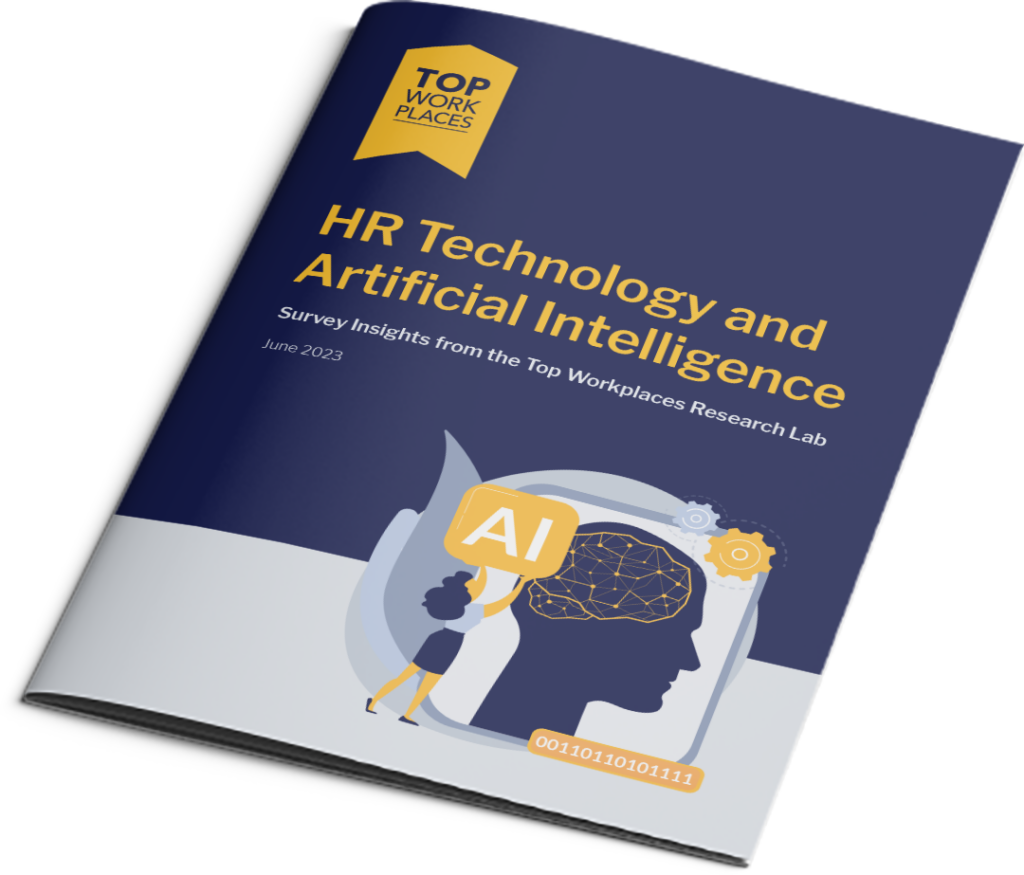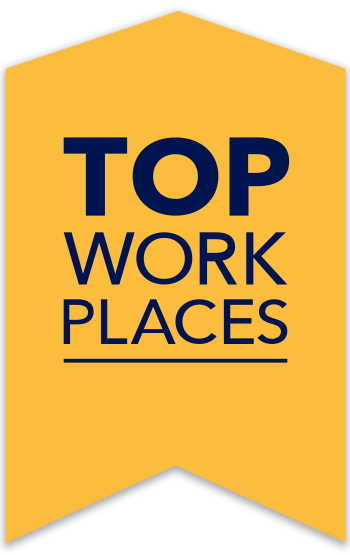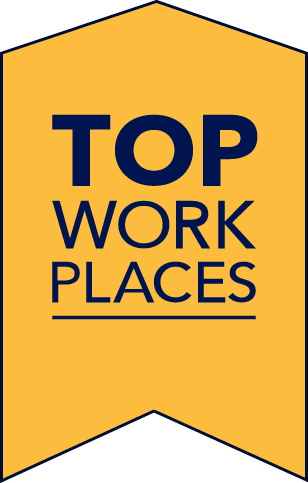Most workplaces are yet to fully embrace the potential of artificial intelligence (AI) in HR, despite the growing attention and concerns surrounding this emerging technology. According to a recent Top Workplaces survey, organizations actively incorporate human resources technology but have been slow in adopting AI. Nevertheless, AI holds immense promise, from optimizing operations and data-driven decision making to revealing valuable insights.
Employee perspectives on AI: excitement and concerns
A study conducted by Energage, encompassing employee engagement survey feedback from over 15,000 workers, sheds light on the attitudes toward HR technology and AI.

The findings highlight that 1 in 6 employees express concerns about the impact of AI on their work, particularly in advertising and marketing, hospitality, entertainment, recreation, travel, financial services, and insurance sectors.
Additionally, 1 in 9 employees believe their jobs may be replaced by AI within the next five years, especially in utilities and communications, hospitality, entertainment, recreation, travel, and financial services and insurance.
Current obstacles and value of HR tech and AI
The survey outcomes reveal several key insights:
- People are both excited and worried about AI’s potential impact.
- A limited number of organizations currently employ AI for HR-related tasks.
- Common HR systems, such as human resources information systems (HRIS), onboarding, and performance management solutions, are prevalent.
- HRIS and recruiting technologies were regarded as the most valuable.
- More than 1 in 3 organizations lack employee listening tools or selection tools.
- Responders expressed high satisfaction with employee recognition and onboarding tools.
- Integration and set-up effort are frequently cited obstacles that hinder the full value of these tools.
- Senior managers display minimal concerns about AI, while team members express greater apprehension.
Enhancing work and enabling thoughtful strategies with AI
Kinsey Smith, senior people scientist at Energage, emphasizes that AI should be viewed as a resource that enhances work rather than replacing workers. It serves as a springboard for more thoughtful strategies and conversations within organizations. Smith suggests that organizations must identify the best uses for AI while being cautious of misusing the technology.
HR tech and AI considerations: privacy, security, and accuracy
Organizations must address various considerations when utilizing AI in HR. Privacy and legal implications, as well as potential security concerns, must be carefully evaluated. Moreover, the accuracy and truthfulness of AI-generated information necessitate human verification. Smith emphasizes the need to understand these facets and grapple with the societal implications as technology advances and new jobs emerge.
In conclusion, the future of AI in HR presents both opportunities and challenges. Organizations have the potential to leverage AI as a powerful tool, supplementing work and facilitating more informed decision-making. However, careful privacy, security, and accuracy considerations are essential to ensure responsible AI adoption. By embracing AI thoughtfully, HR professionals can shape a future where technology and human expertise coexist harmoniously.


 Stand out with an award-winning
Stand out with an award-winning